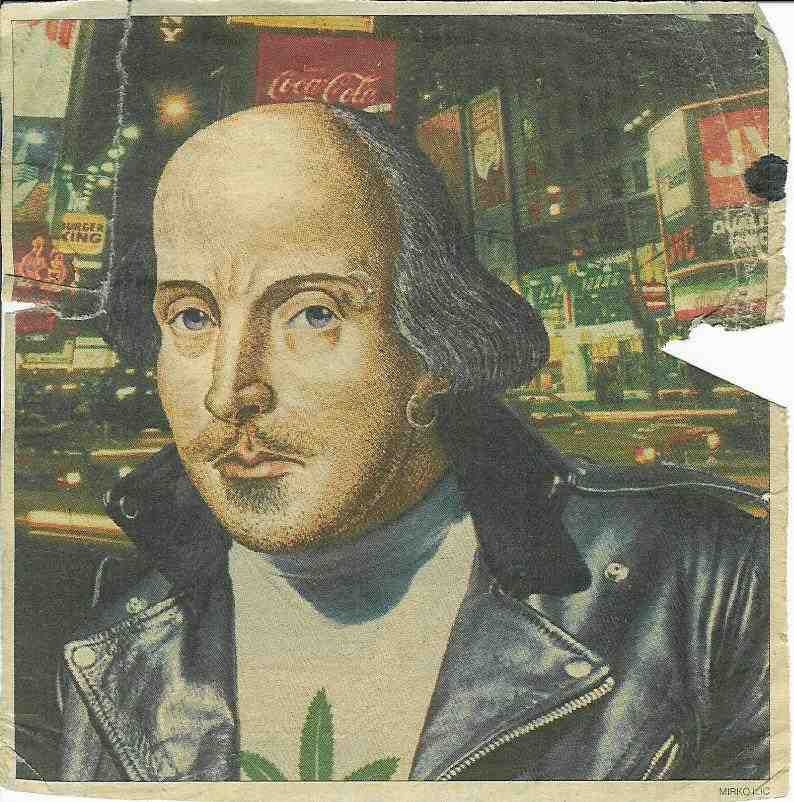Some things are obvious.
Take this painting, for one - it is by Piero della Francesca, an Italian artist of the 15th Century. It is quite famous - was painted around 1459 and can be found in Urbino (one of the truly memorably named towns).
It shows a flagellation - a whipping ...
... and is quite disturbing and thought provoking when you look at it in detail - just what are those three men in the foreground? Who is the man sitting down with the silly hat on? Why is the guy with his back to us wearing a turban? What sort of whipping is this with such a bloodless and calm man on the end of it?
Therein lies the problem - the artist is asking the questions - is provoking thought and condensing ambiguity in the picture. This is in modern dress - why? There is a very rigid formal look to the picture - why? He has done things intended not to answer but to question.
This is a big problem for the critics - it is the job of a critic to disambiguate .. to make clear what is murky, to clean off the detritus and tell us the answers. Art critics delight in telling us what each and every symbol means, what each and every brush stroke was meant for; they expose and reveal the mystery.
Except there is a big problem with that - if the artist is truly great, and wanted there to be ambiguity and mystery, the work won't reveal what is not there - there is no answer, there is only a question.
The critic's supposition is that s/he is more intelligent, more refined, more knowledgeable than the artist. Arrogance at least - and not the sort based on a strong foundation.
knowledgeable than the artist. Arrogance at least - and not the sort based on a strong foundation.
So too with Shakespeare and his texts - countless generations of critics have revealed the 'true' meaning, only to be superseded by a better truth and a better 'critic'.
Reams of paper and reams of editions, with reams of answers to questions Shakespeare doesn't answer - and many to questions Shakespeare doesn't ask.
And the arrogance of the critics knows no bounds - they nod in the direction of Shakespeare's greatness, but then knock it by attempting to reveal what was hidden - for their capacity to reveal is greater than his to hide.
(Thanks to the unknown artist who pointed out the intelligence needed to have painted The Flagellation on a tv programme I saw last night.)
Technorati Tags: Shakespeare, ambiguity, intelligence, Flagellation

Take this painting, for one - it is by Piero della Francesca, an Italian artist of the 15th Century. It is quite famous - was painted around 1459 and can be found in Urbino (one of the truly memorably named towns).
It shows a flagellation - a whipping ...
... and is quite disturbing and thought provoking when you look at it in detail - just what are those three men in the foreground? Who is the man sitting down with the silly hat on? Why is the guy with his back to us wearing a turban? What sort of whipping is this with such a bloodless and calm man on the end of it?
Therein lies the problem - the artist is asking the questions - is provoking thought and condensing ambiguity in the picture. This is in modern dress - why? There is a very rigid formal look to the picture - why? He has done things intended not to answer but to question.
This is a big problem for the critics - it is the job of a critic to disambiguate .. to make clear what is murky, to clean off the detritus and tell us the answers. Art critics delight in telling us what each and every symbol means, what each and every brush stroke was meant for; they expose and reveal the mystery.
Except there is a big problem with that - if the artist is truly great, and wanted there to be ambiguity and mystery, the work won't reveal what is not there - there is no answer, there is only a question.
The critic's supposition is that s/he is more intelligent, more refined, more
 knowledgeable than the artist. Arrogance at least - and not the sort based on a strong foundation.
knowledgeable than the artist. Arrogance at least - and not the sort based on a strong foundation.So too with Shakespeare and his texts - countless generations of critics have revealed the 'true' meaning, only to be superseded by a better truth and a better 'critic'.
Reams of paper and reams of editions, with reams of answers to questions Shakespeare doesn't answer - and many to questions Shakespeare doesn't ask.
And the arrogance of the critics knows no bounds - they nod in the direction of Shakespeare's greatness, but then knock it by attempting to reveal what was hidden - for their capacity to reveal is greater than his to hide.
(Thanks to the unknown artist who pointed out the intelligence needed to have painted The Flagellation on a tv programme I saw last night.)
Technorati Tags: Shakespeare, ambiguity, intelligence, Flagellation
Powered by ScribeFire.





No comments:
Post a Comment